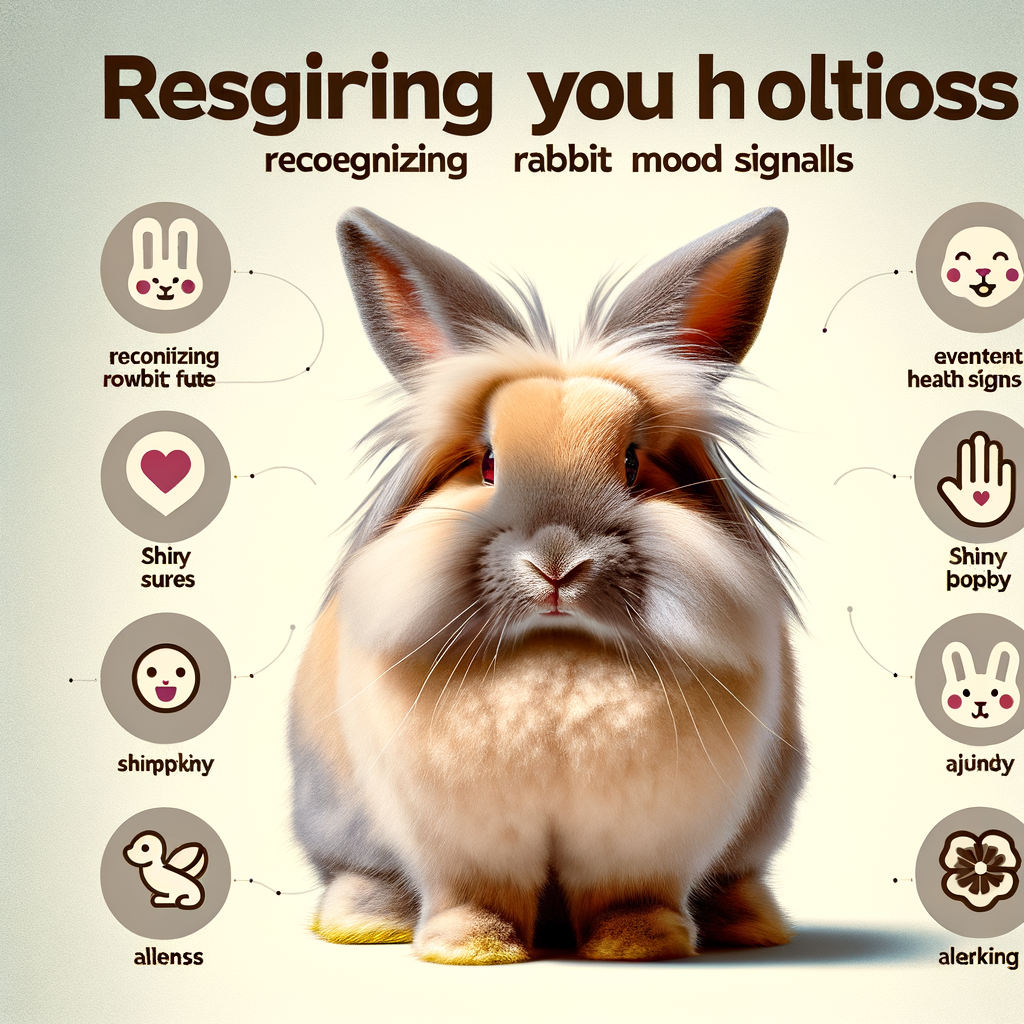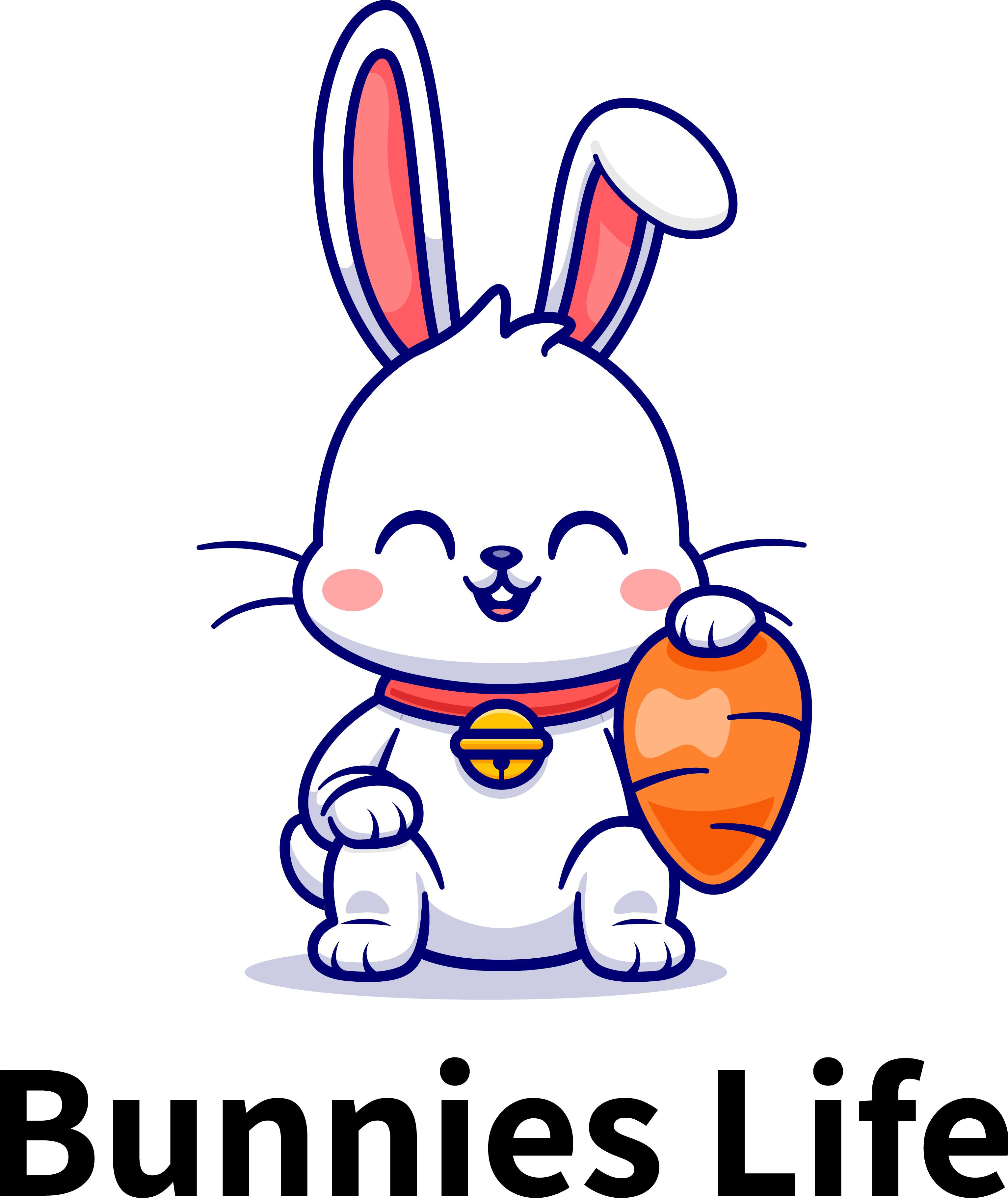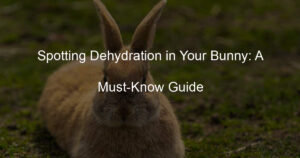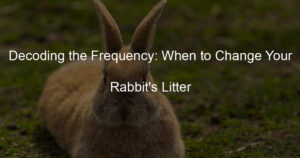
Introduction to Lionhead Rabbit Behavior
When it comes to pets, Lionhead Rabbits are a unique breed. They are not just adorable, but also have distinctive behaviors that make them stand out. In this section, we will delve into understanding these unique characteristics and the importance of observing their behavior for their well-being.
- Understanding the unique characteristics of Lionhead Rabbits
- Importance of observing Lionhead Rabbit behavior for their well-being
Lionhead Rabbits are known for their friendly and playful nature. They are social animals that enjoy the company of their human caretakers and other rabbits. Their name comes from the distinctive ‘mane’ of fur around their head, similar to a lion’s mane. But their behavior is far from ferocious. They are generally calm and gentle, making them ideal pets for families.
One of the unique characteristics of Lionhead Rabbits is their intelligence. They are quick learners and can be trained to use a litter box, respond to their name, and even perform simple tricks. They also have a curious nature, which means they love to explore their surroundings. This curiosity, combined with their intelligence, makes them engaging pets that can provide endless entertainment.
Observing your Lionhead Rabbit’s behavior is crucial for their health and happiness. Changes in behavior can often be the first sign of health issues. For instance, a normally active rabbit becoming lethargic, or a usually friendly rabbit becoming aggressive, could indicate a problem.
Regular observation can also help you understand your rabbit’s likes and dislikes, which can be useful in providing them with a comfortable and stimulating environment. For example, if your rabbit enjoys exploring, providing them with safe toys and spaces to investigate can keep them happy and engaged.
In conclusion, understanding and observing your Lionhead Rabbit’s behavior is not just interesting, but also essential for their well-being. By doing so, you can ensure that your furry friend stays healthy and happy.
Signs of a Happy Rabbit
Understanding your rabbit’s happiness is crucial for their overall well-being. A happy rabbit is a healthy rabbit. Here are some physical signs to look out for in your Lionhead rabbit.
Physical Signs of a Content Lionhead Rabbit
Physical signs are one of the most reliable ways to gauge your rabbit’s happiness. Here are some key physical signs to look out for:
- Healthy and shiny fur: A happy Lionhead rabbit will have a coat that is shiny and full. This is a sign that they are getting the right nutrients and are in good health. If your rabbit’s fur is dull or patchy, it may indicate a health issue or stress.
- Active and playful behavior: A content rabbit is an active one. They love to explore their environment, play with toys, and interact with their human companions. If your rabbit is lethargic or uninterested in play, it could be a sign they are not happy.
- Consistent eating habits: Rabbits have a strong appetite when they are happy and healthy. They should be eating a consistent diet of hay, fresh vegetables, and a small amount of pellets. If your rabbit’s eating habits change, it might be a sign of unhappiness or illness.
Remember, every rabbit is unique and may show happiness in different ways. The key is to spend time with your rabbit and get to know their normal behavior. That way, you can easily spot any changes that might indicate they are not feeling their best.
Behavioral Signs of a Happy Rabbit
Understanding your rabbit’s behavior is crucial to ensure their happiness. Just like humans, rabbits have unique ways of expressing joy and contentment. Let’s explore some of the behavioral signs that indicate a happy rabbit.
- Contentment Purring
- Binkying: A Sign of Rabbit Joy
- Flopping: A Sign of a Relaxed Rabbit
When a rabbit is content, they may produce a soft purring sound, similar to a cat. This is usually accompanied by tooth clicking, which is a clear sign of satisfaction. When your rabbit is purring, it’s a good indication they are feeling happy and secure in their environment.
A ‘binky’ is a unique rabbit behavior that is a clear sign of joy. It’s a spontaneous, energetic leap into the air, often accompanied by twisting and turning. If your rabbit is frequently binkying, it’s a sure sign they are feeling happy and playful.
Flopping is another behavior that indicates a happy and relaxed rabbit. When a rabbit flops, they literally throw themselves onto their side, often from a sitting position. It’s a sign that they feel safe and comfortable in their surroundings.
Observing these behaviors in your rabbit can give you valuable insights into their emotional state. Remember, a happy rabbit is a healthy rabbit. So, always strive to create an environment that encourages these behaviors.
Healthy Bunny Symptoms
As a responsible rabbit owner, it’s crucial to know what a healthy bunny looks like. This way, you can quickly identify any changes in your pet’s behavior or appearance that may indicate illness. Here are some key signs of a healthy bunny:
- Regular grooming habits
- Normal eating and drinking patterns
- Consistent and healthy bowel movements
Rabbits are naturally clean animals. They spend a significant portion of their day grooming themselves. If your bunny is regularly grooming, it’s a good sign of health. They’ll lick their fur to clean it, and you’ll often see them nibbling at their paws or rubbing their face. This behavior not only keeps them clean but also helps to spread natural oils over their fur, which keeps it in good condition.
A healthy bunny will have a good appetite. They should be eating a variety of foods, including hay, fresh vegetables, and a small amount of pellets. Drinking water should also be a regular part of their routine. If you notice any changes in your bunny’s eating or drinking habits, such as refusing food or drinking excessively, it could be a sign of illness.
Rabbits have a unique digestive system, and their droppings can tell you a lot about their health. A healthy bunny will produce small, round, and dry droppings. They should also be producing cecotropes, which are soft, shiny droppings that they eat to absorb essential nutrients. If you notice any changes in your bunny’s droppings, such as diarrhea or unusually small or large droppings, it’s time to consult a vet.
Remember, these are just general signs of a healthy bunny. Each rabbit is unique, and what’s normal for one might not be for another. Always keep a close eye on your pet and consult a vet if you’re ever in doubt about their health.
Understanding Rabbit Emotions
Just like humans, rabbits also have emotions. They can feel happiness, sadness, fear, and even anger. Understanding these emotions is crucial for the well-being of your pet rabbit. In this section, we will discuss how to recognize different mood signs in rabbits.
Recognizing Rabbit Mood Signs
Recognizing mood signs in rabbits is not always easy. However, with careful observation and understanding, you can learn to identify these signs. Let’s discuss some of the most common mood signs in rabbits.
- Identifying signs of stress or fear in rabbits
- Understanding signs of rabbit anger or aggression
Rabbits under stress or fear often show certain signs. They may become less active, hide more often, or even stop eating. Their ears may be pulled back and their body may be hunched. Rapid breathing and widened eyes are also common signs of stress or fear in rabbits.
Angry or aggressive rabbits may growl, lunge, or even bite. They may also thump their hind legs, a behavior known as ‘thumping’. This is a warning sign that the rabbit is upset and wants to be left alone. It’s important to respect their space and try to understand what might be causing their anger or aggression.
Understanding your rabbit’s emotions is key to building a strong bond with them. By recognizing their mood signs, you can ensure that they are happy and healthy. Remember, a happy rabbit is a healthy rabbit!
Interpreting Rabbit Body Language
Understanding your rabbit’s body language is a crucial part of ensuring their happiness and well-being. Here, we will discuss two primary signs that you can easily observe.
- Thumping as a Sign of Alert or Fear
- Ears Back as a Sign of Relaxation or Submission
Rabbits are known for their thumping behavior. When a rabbit thumps its hind legs, it’s usually a sign of alert or fear. This behavior is an instinctual response to perceived danger. In the wild, rabbits use thumping as a warning signal to other rabbits. If your pet rabbit is thumping, it may be because they are scared or anxious about something in their environment. It’s essential to observe and understand what might be causing this behavior to ensure your rabbit feels safe and secure.
Rabbits also communicate their feelings through their ears. When a rabbit lays its ears back against its body, it can mean one of two things: relaxation or submission. If your rabbit is in a calm and familiar environment, ears back usually signifies relaxation. However, if there is a dominant rabbit nearby, your rabbit may lay its ears back as a sign of submission. Observing the context in which your rabbit displays this behavior can help you understand their emotional state better.
By paying close attention to these body language signs, you can better understand your rabbit’s emotions and needs, contributing to their overall happiness and health.
Ensuring Your Lionhead Rabbit’s Happiness
Keeping your Lionhead rabbit happy is not just about providing the basics. It’s about understanding their needs and creating an environment that caters to their unique personality and preferences. Here are some key factors to consider:
- Providing a Safe and Comfortable Environment
- Regular Play and Exercise
- Healthy Diet and Hydration
Your rabbit’s living space plays a significant role in their happiness. A safe and comfortable environment means a clean, spacious cage with ample room for them to move around. It should be free from any potential hazards and include soft bedding for them to rest. It’s also important to keep their cage in a quiet, low-stress area of your home, away from loud noises and high traffic.
Lionhead rabbits are active and playful creatures. Regular play and exercise are crucial for their physical health and mental well-being. Provide them with a variety of toys to keep them entertained and encourage them to explore. Remember, playtime is also an excellent opportunity for you to bond with your rabbit and build trust.
A balanced diet is essential for your rabbit’s overall health and happiness. This should include a mix of hay, fresh vegetables, and a small amount of pellets. Hay should make up the majority of their diet as it aids in digestion and dental health. Fresh water should always be available and changed daily to ensure your rabbit stays hydrated.
In conclusion, ensuring your Lionhead rabbit’s happiness involves a combination of a safe and comfortable environment, regular play and exercise, and a healthy diet. By understanding and catering to these needs, you can help your rabbit lead a happy and fulfilling life.
Conclusion: The Key to a Healthy and Happy Lionhead Rabbit
As we wrap up our discussion on Lionhead Rabbit behavior, it’s crucial to remember that understanding your bunny’s mood signs and being a caring and attentive owner are the keys to ensuring your rabbit’s health and happiness.
- Importance of Understanding and Responding to Rabbit Mood Signs
- Role of a Caring and Attentive Owner in Ensuring Bunny Contentment
Recognizing and responding to your rabbit’s mood signs is vital. Rabbits, like humans, have different moods and emotions. They can be happy, sad, scared, or even angry. By understanding these signs, you can ensure that your rabbit is comfortable and content. For instance, a happy rabbit will often jump and twist in the air, a behavior known as a “binky.” On the other hand, a rabbit that is thumping its hind legs may be scared or upset. By responding appropriately to these signs, you can help your rabbit feel safe and loved.
Being a caring and attentive owner plays a significant role in your rabbit’s happiness. This means providing a safe and comfortable environment, a balanced diet, and plenty of playtime. Regular grooming and health check-ups are also essential to keep your bunny in top shape. Remember, a happy rabbit is a healthy rabbit. Your love, care, and attention can make a world of difference in your rabbit’s life.
By understanding your rabbit’s behavior and providing the care it needs, you can ensure a long, healthy, and happy life for your Lionhead Rabbit. Remember, the key to a happy rabbit is a caring and attentive owner. So, let’s make our furry friends’ lives as joyful as they make ours!




